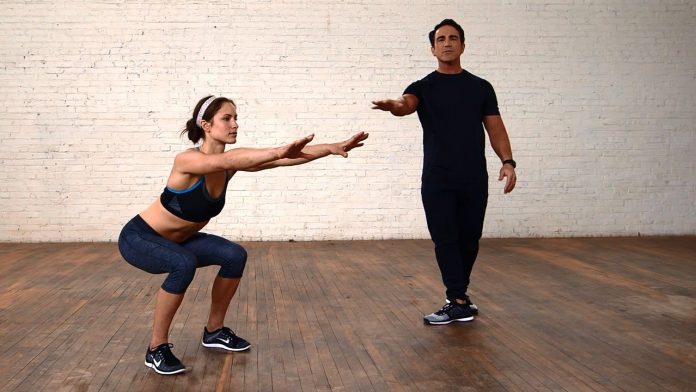Do you feel knee pain while or after you have done squatting exercise? If yes, then it is a clear indication of an injury.
There can be many underlying reasons for such kind of pain that you are feeling. Let’s have a look at two major reasons that could be causing you knee pain:
- Firstly, it could be because of the fact that you ankle or hip joints aren’t that mobile which in turn is putting more strain on your knees while you are performing the squatting exercise. If that’s the case, then we would recommend you to consult a physician for proper diagnosis of the problem.
- Secondly, you are not performing the squatting exercise in the right form. If that’s case, then we would recommend you to consult a qualified personal instructor who has successfully completed certification in fitness trainer course in Delhi from a reputed institution.
Besides, the above mentioned two reasons there are some other reasons that could even create trouble for your knees during the squatting exercise.
Let’s have a look at them one-by-one so that you can get a clear idea:
Range of motion you follow during the squatting exercise
You must have heard from your friends or a qualified personal trainer that you should not go below the level where your thighs are perpendicular to the ground.
The problem is that when you reach below the level where your thighs are perpendicular to the ground you put unnecessary strain on your knee joints and nearby ligaments.
On the other hand, when you hold your squat position at a perpendicular or above that it basically doesn’t involve your hip flexor muscles in the exercise and again puts more pressure on your knee.
This is the reason why most of a qualified personal instructor who has successfully completed certification in fitness trainer course in Delhi from a reputed institution suggests you do the full range of motion to avoid any sort of injury.
Glute muscle inactivity
Your glute muscles are quite multifaceted muscles as they work to move legs at the hip joint, as well as, outwardly revolve your femur. In operativeness of the glute muscles is very common provided you are someone who has to spend most of your day time while sitting on a chair.
That’s why you should need to make sure you should stand up in between and move around to make your glute muscle active.
Ankle Fixity
While doing the squatting exercise, if you observe that you tend to lift your feet off the ground this clearly means your ankles lack the required flexibility for this kind of movement.
Ankle fixity is considered to be another major reason behind increased pressed on your knees during the squat reps. Broadly speaking, the fixity of ankle reduces your overall range of motion thereby increasing the possibilities of pain in your knee during the exercise, says a qualified personal instructor who has successfully completed certification in fitness trainer course in Delhi from a reputed institution


